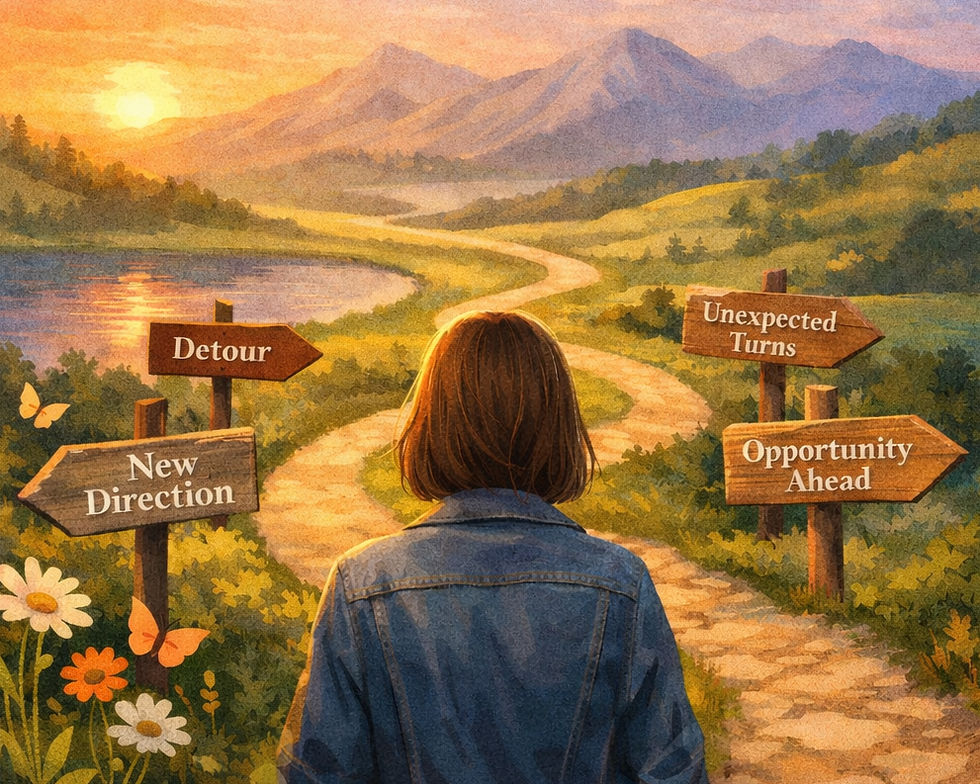Mental Health When Your Relationship Gets Tough
- Thomas Wood LCSW

- Jan 29, 2025
- 3 min read
Relationships can be amazing, but they can also get hard. Maybe you’ve been arguing more than usual or feel distant from your partner. It’s normal to feel upset or unsure when this happens. You’re not alone, and there are ways to take care of yourself and your mental health.
Every relationship has challenges because no two people are exactly alike. Misunderstandings, stress, and unmet needs can all create tension. Life changes, like a new job or health problems, can also put a strain on your connection. The good news is that these struggles don’t mean your relationship is failing. They are just part of the journey.
When things aren’t great in your relationship, it can weigh on your mind. You might feel anxious or sad, or find yourself questioning your self-worth. Maybe you’re losing sleep or feeling overwhelmed. These signs mean it’s time to take a step back and care for yourself.
Here are some simple steps to help you manage your mental health during relationship challenges:
Acknowledge your feelings. It’s okay to feel upset or confused. Journaling or talking to someone you trust can help you sort through your emotions.
Practice self-care. Get some sleep, eat well, and take breaks to do things you enjoy. Even a short walk or a favorite hobby can help clear your mind.
Set healthy boundaries. If arguments are overwhelming, take a pause. It’s okay to ask for space to cool off and think.
Reach out. Talking to a close friend or family member can help you feel supported. They don’t have to solve your problems; just listening can make a big difference.
Consider therapy. A therapist can help you understand your feelings and learn new ways to handle tough situations. Therapy is a safe space where you can explore what’s bothering you.
The biggest and best thing you can do to help your mental health if your relationship is struggling is this: Recognize that You. Are. Not. Your. Relationship.
Your relationship (and your entire life!) may feel like it is stuck on repeat: Same people, same places, same routines, same conversations. But you are bigger than your relationship, and your life has other rewards and satisfactions. If your life feels too small, you need to get a bigger life.
This “get a bigger life” thing – how do you do that? Glad you asked!
An obvious step is to try new things. Step outside your comfort zone. It doesn’t have to be something huge. Try a new hobby or visit a place you’ve never been.
You can meet new people. Making new friends can add so much to your life. The best way to do that is to go where people are doing things you enjoy doing, like a past hobby or sport that got put on the back burner. Join a class, volunteer, or strike up a conversation with someone you’ve never talked to before. Every new relationship has the potential to teach you something and expand your world.
Saying “Yes” more often can be a difference-maker. When opportunities come your way, try saying yes, even if they scare you a little. Whether it’s attending an event, learning a skill, or traveling somewhere unfamiliar, saying yes can lead to unexpected joy.
Above all else, make time for what matters. A bigger life doesn’t have to mean a busier one. It means filling your days with things that bring you purpose and joy. Spend time with loved ones, pursue your passions, and let go of what no longer serves you.
It is possible that making your life bigger will not only improve your mental health; it may also improve your relationship. People who do interesting things are interesting partners. If your partner embarks on a similar growth journey, it is possible your relationship will experience a second flowering, with increased joy and emotional availability. You never know – amiright?
Here if you need me.
Tom




Comments